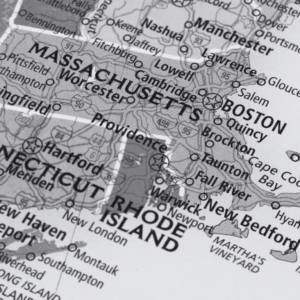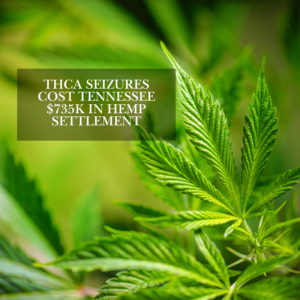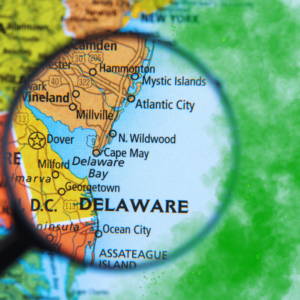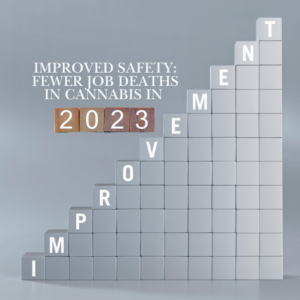Election Day Guide: Cannabis & Psychedelics on the Ballot

Trump and Harris Show Support for Cannabis Legalization as Florida and Other States Prepare for Ballot Initiatives
As marijuana legalization gains traction across the United States, prominent political figures are voicing their support for policy reform. Former President Donald Trump and Vice President Kamala Harris, both highly influential in shaping public opinion, have recently spoken out in favor of marijuana legalization. Trump, a Florida resident, announced that he intends to vote “yes” on Florida’s Amendment 3, which would legalize recreational marijuana in the state, while Harris, a long-time advocate for reform, continues to push for federal legalization.
Their endorsements come as voters in several states, including Florida, Massachusetts, Nebraska, North Dakota, and South Dakota, prepare to decide on cannabis and psychedelic drug policies on upcoming ballot initiatives.
Donald Trump’s Endorsement of Florida’s Amendment 3
In September, former President Donald Trump took to social media to express his support for Florida’s Amendment 3, a citizen-led initiative that would legalize recreational marijuana for adults 21 and older. He cited the need to end arrests and incarceration for minor marijuana-related offenses, stating, “I believe it is time to end needless arrests and incarcerations of adults for small amounts of marijuana for personal use.” Trump added that he will be voting in favor of Amendment 3 in the upcoming election, framing his support as a step toward ending criminal penalties and promoting access to safe, regulated cannabis products.
Amendment 3 aims to amend Florida’s state constitution to allow recreational marijuana use for adults, permitting possession of up to three ounces of marijuana and up to five grams of concentrated cannabis. For the measure to pass, it requires a supermajority vote of 60%, a high threshold that may make the path to legalization challenging.
Why Trump’s Stance Could Influence Florida’s Vote
Trump’s support for Amendment 3 could have significant implications for the vote, as Florida remains a state with a sizable conservative population. Trump’s endorsement may sway undecided or traditionally conservative voters who respect his influence and policy positions. His stance also underscores a shift within conservative circles, where some members are beginning to embrace marijuana legalization as an issue of personal freedom and criminal justice reform.
Kamala Harris Pushes for Federal Cannabis Legalization
Vice President Kamala Harris, who has a complex history with cannabis policy, recently reiterated her support for federal legalization. In a podcast interview on All the Smoke, Harris emphasized the need to stop criminalizing marijuana use, saying, “We have come to a point where we have to understand that we need to legalize it and stop criminalizing this behavior.” Harris is the first major party presidential nominee to openly advocate for federal marijuana legalization, and her endorsement reflects the growing national support for decriminalizing cannabis.
As more states legalize marijuana for both medical and recreational use, the federal government faces increasing pressure to align its policies with state-level reforms. Harris’ stance could help build momentum for national reform, which advocates argue is necessary to create a consistent and equitable cannabis market across the country.
The Status of Cannabis Legalization Across the U.S.
Currently, 24 states and Washington, D.C., have legalized recreational marijuana, while 38 states and D.C. allow its use for medical purposes. The landscape of cannabis policy is continuously evolving, with additional states considering legalization through upcoming ballot initiatives. In addition to cannabis, some states, such as Oregon and Colorado, have recently approved the legal use of certain psychedelics, including psilocybin, for therapeutic purposes.
As Election Day approaches, a number of states will have significant decisions to make regarding cannabis and psychedelics. Here’s an overview of key ballot initiatives up for a vote this cycle.
Florida: Amendment 3 for Adult Personal Use of Cannabis
Florida’s Amendment 3 would amend the state constitution to permit recreational marijuana use for adults 21 years and older. If passed, the amendment would allow individuals to possess up to three ounces of marijuana, with a limit of five grams in concentrated form. While medical marijuana has been legal in Florida since 2016, recreational use remains prohibited, and Amendment 3 seeks to bridge this gap by expanding access.
Current Law and Requirements for Passage
Florida’s current cannabis law permits marijuana use strictly for medical purposes, limited to individuals with a medical marijuana ID card. Amendment 3 aims to create a broader market by decriminalizing recreational use. However, Florida law requires constitutional amendments to pass by a 60% supermajority vote, a high bar that could make approval difficult.
Massachusetts: Question 4 on the Natural Psychedelics Substances Act
Massachusetts voters will consider Question 4, a citizen-led initiative called the Natural Psychedelics Substances Act. If approved, this measure would allow adults 21 and older to possess and use certain psychedelic substances, such as psilocybin and mescaline, in their homes or for therapeutic purposes at licensed facilities. The act also proposes the establishment of a commission to oversee the regulation, taxation, and safe use of psychedelics in therapeutic settings.
Implications for Therapeutic Use and Mental Health
The initiative aligns with a growing movement to explore psychedelics as potential treatments for mental health conditions, such as PTSD and depression. Massachusetts’ proposal follows similar measures in Oregon and Colorado, which have both legalized psychedelics for therapeutic use. Question 4 could position Massachusetts as another pioneer in the field, allowing researchers and medical professionals to advance studies on the potential benefits of these substances.
Other States Voting on Cannabis Legalization: Nebraska, North Dakota, and South Dakota
Nebraska, a traditionally conservative state, has placed two medical cannabis initiatives on the ballot: Initiative 437, which would legalize medical marijuana possession and consumption, and Initiative 438, which would establish a regulatory system for cannabis businesses. With public support for medical marijuana growing across the nation, Initiative 437 has polled favorably, garnering 59% support in a recent survey. If passed, Nebraska could join the 38 other states that allow cannabis for medical use, providing relief to patients with qualifying medical conditions.
North Dakota and South Dakota: Recreational Cannabis Legalization
In North Dakota, Measure 5 aims to legalize recreational cannabis use for adults, following two previous attempts at the ballot box that failed in 2018 and 2022. Polling has shown mixed results, with support for Measure 5 hovering around 45%, making its success uncertain. Similarly, South Dakota’s Initiated Measure 29 seeks to establish a recreational cannabis market. South Dakota voters initially passed a recreational measure in 2020, but it was later overturned by a legal challenge backed by Governor Kristi Noem. This year’s initiative represents a renewed effort by cannabis advocates to legalize recreational use in the state.
Legal and Social Implications of Upcoming Cannabis Ballot Initiatives
The outcomes of these initiatives could have far-reaching effects on the national cannabis landscape. Should Florida and the other states succeed in passing their measures, the political momentum for federal legalization may grow stronger, adding pressure on lawmakers to address the disparities between state and federal marijuana laws. Additionally, measures such as Massachusetts’ Natural Psychedelics Substances Act could broaden the conversation around drug policy reform, focusing on potential health benefits of controlled psychedelic use.
However, failure to pass these initiatives could signal a potential slowdown in cannabis reform momentum, especially in conservative states. Advocates fear that defeats at the ballot box could hinder future legalization efforts and delay progress in establishing a nationwide regulatory framework for cannabis and psychedelics.
A Pivotal Moment for Cannabis and Drug Policy Reform
As the nation watches these pivotal votes, the endorsements from figures like Donald Trump and Kamala Harris underscore the shifting attitudes toward marijuana legalization. With multiple states weighing cannabis and psychedelic reform measures, the results could set the stage for the future of drug policy in the United States.
The decisions made on Election Day will likely influence not only state policies but also national conversations on cannabis, potentially bringing the U.S. closer to comprehensive drug reform and a more consistent regulatory environment across state lines.











